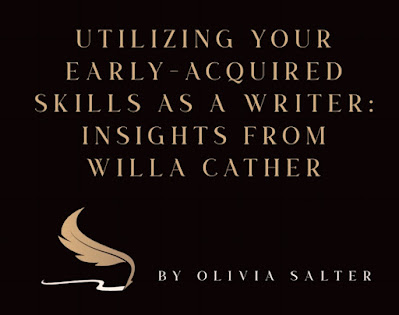The Impostor Syndrome: Unmasking the Dread of the Fiction Writer
By Olivia Salter
In the realm of fiction writing, the journey from an aspiring author to a recognized voice is often fraught with self-doubt and insecurity. One of the most pervasive psychological challenges that writers face is the impostor syndrome, a phenomenon where individuals doubt their accomplishments and fear being exposed as a "fraud." For fiction writers, this can be particularly crippling, as the art of storytelling demands both vulnerability and confidence.
Understanding Impostor Syndrome
Impostor syndrome is characterized by persistent feelings of self-doubt, inadequacy, and a fear of being outed as a pretender. For many writers, these feelings can manifest in various ways: constant comparison to other authors, second-guessing their creative choices, or feeling that their success is merely a result of luck rather than talent. This internal struggle can lead to creative paralysis, where the writer hesitates to share their work or pursue opportunities that could advance their careers.
The Creative Process and Self-Doubt
The creative process is inherently subjective. What resonates with one reader may not resonate with another, and this unpredictability can amplify feelings of inadequacy. Writers often pour their hearts into their stories, making them vulnerable to criticism. When a manuscript is rejected or a critique stings, it can feel like a personal attack, reinforcing the belief that one does not belong in the literary world.
Moreover, the rise of social media has intensified these feelings. Writers are bombarded with success stories and polished images of fellow authors, leading to a skewed perception of what success looks like. The comparison game can be detrimental, as it distracts from the unique voice and vision each writer possesses.
Combatting the Impostor Syndrome
While the impostor syndrome can be overwhelming, it is possible to combat these feelings and reclaim confidence in one’s writing. Here are some strategies:
1. Acknowledge Your Feelings: Recognizing that impostor syndrome is a common experience among writers can help normalize these feelings. Many successful authors, from J.K. Rowling to Neil Gaiman, have openly discussed their struggles with self-doubt.
2. Celebrate Small Wins: Instead of focusing solely on monumental achievements, celebrate the smaller milestones in your writing journey. Completing a chapter, submitting a story, or receiving positive feedback can all serve as reminders of your progress.
3. Seek Support: Joining a writing group or connecting with fellow writers can provide a nurturing environment to share experiences and offer encouragement. These communities can serve as a reminder that you are not alone in your struggles.
4. Focus on the Process: Shift your attention from the end product to the joy of writing itself. Embrace the creative process, allowing yourself to experiment and explore without the pressure of perfection.
5. Keep a Journal: Documenting thoughts and feelings can help you process self-doubt. Reflecting on past successes and positive feedback can serve as a powerful antidote to impostor syndrome.
In conclusion, the impostor syndrome is a formidable foe in the landscape of fiction writing, but it is not insurmountable. By acknowledging these feelings and adopting strategies to combat them, writers can reclaim their narratives and embrace their unique voices. Remember, every storyteller has a story worth telling, and your perspective is invaluable in the tapestry of literature. Embrace your identity as a writer, and let your imagination soar free of the burdens of doubt.




